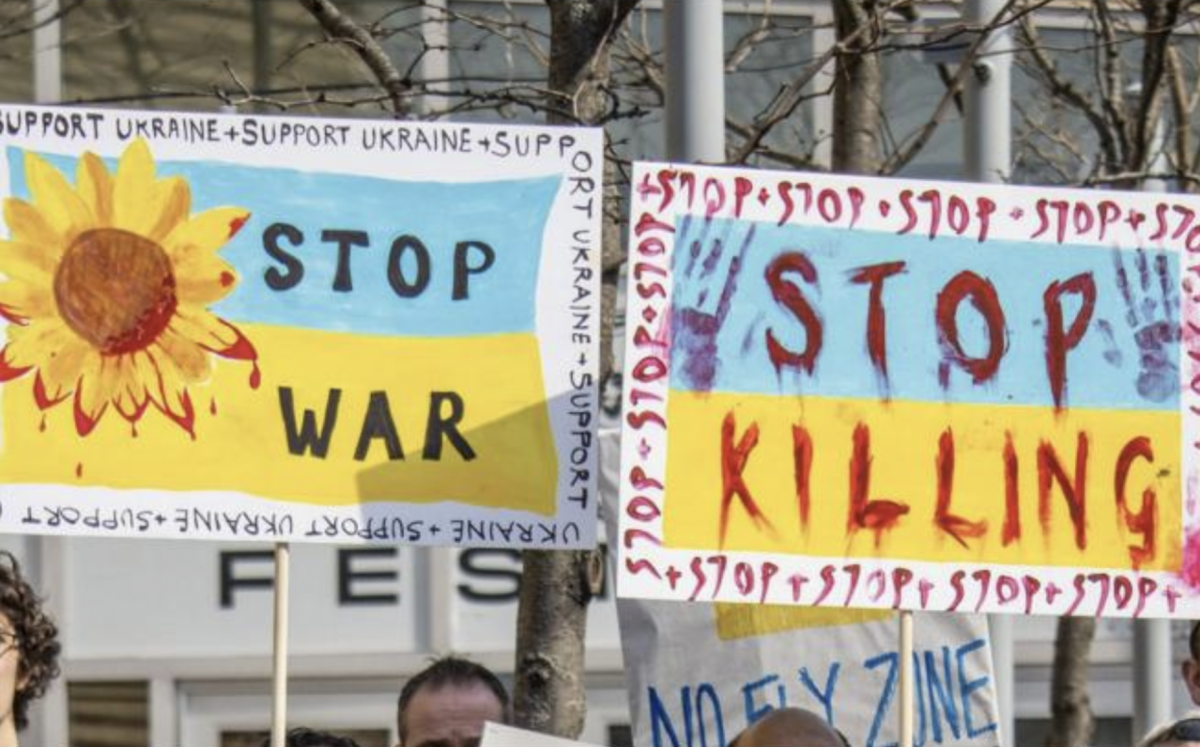“May you live in interesting times” is thought to be an ancient Chinese expression. Sounds nice, right? But rather than being a blessing, it is an ironic curse.
The “interesting times” being times of chaos and change. We indeed are living in “interesting times,” both domestically and internationally.
Domestically, we are witnessing an unprecedented assault on our democracy, efforts to turn back the clock on civil and women’s rights, the propagation of bold-faced lies, intimidation through threats of violence — including death threats against prosecutors and judges.
Internationally, democracy is also on the rocks. Terms like “democratic backsliding,” “the democratic deficit” and “illiberal democracy” reflect the disturbing downward trend in global democracy that we see in our interesting times.
Unable to tolerate an aspiring democracy on its doorstep, Russia did the unthinkable and launched a full-scale invasion of Ukraine last year. It was an unparalleled violation of another country’s national sovereignty and international law.
Most of the world’s democracies have rallied to support embattled Ukraine, but many autocracies and theocracies have not. They have lent political and even military support to Russia, including Iranian drones and North Korean munitions.
The Great Power rivalry that exists between the United States, China and Russia plays out all around the world, including in the Ukraine, Far East Asia and sub-Saharan Africa. It is about power and resources but also about competing political systems: democracy and authoritarianism.
This rivalry takes place not only in the traditional domains of land, sea and air but also, increasingly, in cyberspace. Russia’s attempts to sow chaos and division in elections in the U.S., France and elsewhere through social media are part of a broader effort to undermine democracy.
These efforts to meddle in our democracy are now going into maximum overdrive with the expanded use of AI-enhanced tools, like deep fakes, which are now ubiquitous on social media platforms.
And then, just when we thought things were tense enough, the horror of the Hamas attack on Israel, the bombardment of Gaza and the ensuing humanitarian crisis in the region came along. Now, it is very likely that a massive Israeli ground invasion of Gaza will occur. This will bring more death and destruction, create more conflict and de-stabilize an even larger portion of the Middle East.
We are living in a time of international political disorder.
Moreover, the post-Second World War international economic order that brought a modicum of peace and an abundance of prosperity to much of the world is also crumbling. The so-called Bretton Woods Order successfuly lifted millions of people out of abject poverty.
Economic liberalism, a faith in free markets which was the philosophical foundation of the international economic order, is now being displaced by economic nationalism, which prioritizes perceived, perhaps even politicized, security issues over economic prosperity.
In the U.S., the Biden administration has framed new U.S. high-tech export controls as “high walls around a small yard,” but no matter how it may be framed, this is still a form of economic nationalism.
We are transitioning from world order to world disorder. What should and can you do?
As students, you should work on your global literacy — that is, on your understanding of what is happening in the world and why.
Try to understand these what and why questions in the broader contexts of important geopolitical events that play a large role in shaping how these events occur. These include the Great Power rivalry and the rise of China, the global contest between democracy and authoritarianism, demands to make our international institutions more inclusive and the shift from economic liberalism to economic nationalism.
Understanding international events within a broader context will help you make more sense of them and help you make connections from one thing to another — as opposed to seeing them as a morass of individual, isolated and confusing events.
So, how do you do this? Become a political science major! Attend Times Talks and other university events that deal with international issues. Stay up to date with international news; I have many books and podcasts I can recommend that will help you do so, if you reach out to me.
Move beyond the meaningless clicks and “likes” that are characteristic of social media activism; you can join existing activist groups — or even start a new one on campus that can make real change. Look for leadership and inspiration in the words of people like Greta Thunberg and Malala Yousafzai.
Participate — as your hearts and minds prompt you — in protests, rallies, vigils and letter-writing campaigns.
For me, as a professor of international relations, this moment in time is a unique teachable moment. I believe that we are in a critical period of the overall state of the globe, where the trajectory of today’s events can be hugely momentous in deciding humanity’s ultimate fate, even moreso than they were at the end of the Cold War.
It is an opportunity for me to try to help my students make sense of all these changes. While all of this is intellectually and emotionally challenging, it is also very exciting.
In any event, we all need to strap in. We live in interesting times!


